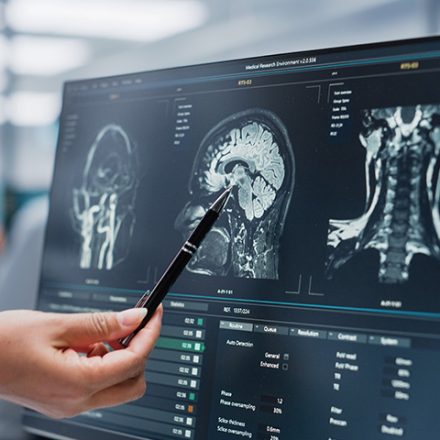8 Signs of Possible Traumatic Brain Injury
A traumatic brain injury (TBI) is an injury to the brain caused by trauma to the head. The potential causes may include falls, accidents at home or at work, road traffic accidents or assaults.
More than one million people suffer a head injury each year. Many of those will have minor symptoms and no lasting effects but unfortunately others will be left with a traumatic brain injury that can be life changing.
Mild traumatic brain injuries may affect your brain cells temporarily, but more serious traumatic brain injury can result in bruising, bleeding and other physical damage to the brain that can result in long term complications or even death.
Some signs or symptoms may appear immediately after the traumatic event, while other physical and psychological effects may appear days or weeks later.

Signs of potential brain injury
Lingering headaches can be a side effect of a traumatic brain injury (TBI).
If you are sleeping far more than usual, this may be a sign that you have suffered from a brain injury.
Dizziness, clumsiness or general loss of balance may be key indicators.
If you have an upset stomach and cannot think of a reason why you may be suffering from this symptom, then you may be able to locate it back to a head injury. Nausea and vomiting are symptoms relating to a mild TBI.
It is quite likely that your senses could be affected by a TBI and usually it is your eyesight that is affected, but equally your speech may be affected.
The part of the brain that controls impulses may have been affected by the injury, and if you are having feelings of sadness then it may be related to a TBI.
As well as a lack of concentration, you may become easily confused and suffer from frustration at your inability to perform simple tasks or forgetting how to do things.
Convulsions that can result in the loss of consciousness can be attributed to a moderate to severe TBI.
Prevention to Reduce Risk of Brain Injury
- Always wear a seatbelt in a vehicle and ensure that airbags are installed.
- Do not drive under the influence of alcohol or drugs including prescription medications which impair the ability to drive.
- Always wear a helmet while riding a bicycle or motorcycle.
- When playing contact sports, it is advisable to wear head protection where possible.
- Install handrails in bathrooms.
- Place a non-slip mat in the bath or shower.
Treatment
Ensure you receive medical treatment as urgently as possible after the head injury has taken place or after you develop any of the above symptoms.
The effects of TBI differ from person to person, obviously depending on how severe the injury was and what part of the brain was damaged.

Leaving Hospital and Returning Home after a Brain Injury
Many people are left with severe symptoms and may be transferred to a specialist brain injury rehabilitation unit. However, if the patient is judged to be able to return home straight from hospital, then the patient and their family should be given contact details of the hospital neurological rehabilitation team so that they have someone to contact in the future.
A discharge meeting should be held with the hospital before the patient is sent home. Close family members along with the hospital and rehab staff should attend. All remaining difficulties that the patient has should be considered by the hospital, including any physical, psychological and cognitive issues. It is vital that the patient and their family have been advised on how to continue to manage the patient’s continuing problems and that the hospital have provided a satisfactory explanation as to his or her continuing need for rehabilitation and how this will be met.
There are various brain injury charities and support groups that patients are advised to contact to provide continued advice and assistance in dealing with their traumatic brain injury. These groups include:
- Child Brain Injury Trust (CBIT)
- Brain Injury Hub
- Headway (a national brain injury charity that promotes understanding of all aspects of brain injury and provides information, support and services to patients, families and carers)
If you have been diagnosed with a traumatic brain injury, please do not hesitate to contact our Bradley Wright on Bradley.Wright@edslaw.co.uk 0208 514 9000 for advice on a No Win, No Fee basis.
